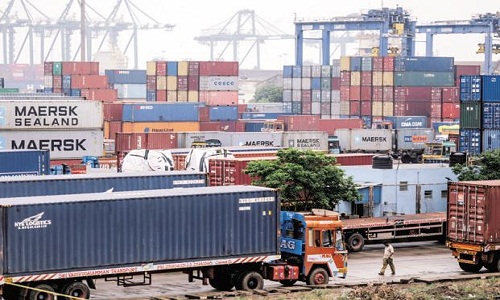"Despite many rounds of negotiations, the suspense regarding India’s participation in the proposed 16-member mega-trade deal, Regional Comprehensive Economic Partnership (RCEP) continues. The Indian government has engaged three consultants: ICRIER, the Centre for Regional Trade housed in the Indian Institute of Foreign Trade (IIFT), Delhi, and the IIM, Bangalore — to hold stakeholder consultations on India’s strategy in goods, services and investment negotiations. The sentiments regarding the RCEP are quite divided. The first point of objection is that India’s trade deficits have always widened with nations after signing free-trade-agreements (FTAs) with them. This is evident from its FTAs with the ASEAN, Japan, Korea, and Singapore, most of which are RCEP nations."
 Despite many rounds of negotiations, the suspense regarding India’s participation in the proposed 16-member mega-trade deal, Regional Comprehensive Economic Partnership (RCEP) continues. The Indian government has engaged three consultants: ICRIER, the Centre for Regional Trade housed in the Indian Institute of Foreign Trade (IIFT), Delhi, and the IIM, Bangalore — to hold stakeholder consultations on India’s strategy in goods, services and investment negotiations.
Despite many rounds of negotiations, the suspense regarding India’s participation in the proposed 16-member mega-trade deal, Regional Comprehensive Economic Partnership (RCEP) continues. The Indian government has engaged three consultants: ICRIER, the Centre for Regional Trade housed in the Indian Institute of Foreign Trade (IIFT), Delhi, and the IIM, Bangalore — to hold stakeholder consultations on India’s strategy in goods, services and investment negotiations.
Diverse opinions cause concerns
The sentiments regarding the RCEP are quite divided. The first point of objection is that India’s trade deficits have always widened with nations after signing free-trade-agreements (FTAs) with them. This is evident from its FTAs with the ASEAN, Japan, Korea, and Singapore, most of which are RCEP nations.
Some economists and free trade proponents believe RCEP to be beneficial for the Indian economy. In a very compelling argument, Geethanjali Nataraj and Garima Sahdev recently inferred the long-term benefits of joining the bloc far outweigh the short-run costs. The authors state that if India aims its ‘Make in India’ to become a global success, it needs to become a part of the Asian value and supply chain which either begins or ends in India.
While “Make in India” will attract foreign investment, this was never conceived of at the cost of domestic industry. Even after 25 years of economic reforms, Indian manufacturing is yet to be competitive enough to face the vagaries of competition brought about by international trade. This situation prevails also due to the unimplemented reforms in the markets besides multiple GST rates across India.
Agreement likely to derail growth plans
Despite low relative labor cost, manufacturing productivity is still one of the lowest in the world. Under such circumstances, the Indian industry is hardly in a position to compete in a level playing ground in a free-trade region. “Make in India” is meant to create enabling conditions for both domestic and foreign businesses to thrive. If the domestic industry has to thrive, it needs to be protected. Mega-trade deals like the RCEP may derail the timing and coordination of such plans.
compete in a level playing ground in a free-trade region. “Make in India” is meant to create enabling conditions for both domestic and foreign businesses to thrive. If the domestic industry has to thrive, it needs to be protected. Mega-trade deals like the RCEP may derail the timing and coordination of such plans.
Whether this complementarily in FTAs really exists is a working hypothesis without any solid empirical analysis or evidence. Rather, things may simply work the other way round. It needs to be looked at whether the RCEP will really lead to cheaper intermediate goods, or cheaper final goods. So far, the rise in Indian trade deficit with its FTA partners has occurred due to cheap imports of final products that have led to an increase in consumer surplus (or consumer well-being), but adding to the angst of the domestic producers. Cheaper intermediate goods can rather help in making Indian exports competitive.
RCEP complicate skilled labor movement
In FTAs with East and Southeast Asian economies, India capitalises on its pool of ‘skilled’ labor force for improved access to employment opportunities in these economies. Although this can be achieved by easing the movement of professionals through the liberalisation of the Mode 4 in services trade, it raises a matter of concern in the context of the RCEP.
As this will be the first mega-trade deal of such comprehensive nature that India is engaged with, the ToR of the three consultants should not be confined to merely holding stakeholder consultations. They should place a more comprehensive report on the benefits and costs of India’s participation in the RCEP. Now that bilateral negotiations are being pursued, India needs to adopt the right approach to extract maximum benefits from this mega-trade deal.












